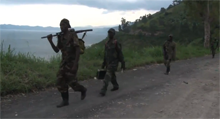
Building Trust in AI through Justice


Array
(
[thumbnail] => https://s42831.pcdn.co/wp-content/uploads/2022/09/hero-placeholder-150x150.png
[thumbnail-width] => 150
[thumbnail-height] => 150
[medium] => https://s42831.pcdn.co/wp-content/uploads/2022/09/hero-placeholder-300x129.png
[medium-width] => 300
[medium-height] => 129
[medium_large] => https://s42831.pcdn.co/wp-content/uploads/2022/09/hero-placeholder-768x329.png
[medium_large-width] => 768
[medium_large-height] => 329
[large] => https://s42831.pcdn.co/wp-content/uploads/2022/09/hero-placeholder-1024x439.png
[large-width] => 1024
[large-height] => 439
[1536x1536] => https://s42831.pcdn.co/wp-content/uploads/2022/09/hero-placeholder.png
[1536x1536-width] => 1400
[1536x1536-height] => 600
[2048x2048] => https://s42831.pcdn.co/wp-content/uploads/2022/09/hero-placeholder.png
[2048x2048-width] => 1400
[2048x2048-height] => 600
[gform-image-choice-sm] => https://s42831.pcdn.co/wp-content/uploads/2022/09/hero-placeholder.png
[gform-image-choice-sm-width] => 300
[gform-image-choice-sm-height] => 129
[gform-image-choice-md] => https://s42831.pcdn.co/wp-content/uploads/2022/09/hero-placeholder.png
[gform-image-choice-md-width] => 400
[gform-image-choice-md-height] => 171
[gform-image-choice-lg] => https://s42831.pcdn.co/wp-content/uploads/2022/09/hero-placeholder.png
[gform-image-choice-lg-width] => 600
[gform-image-choice-lg-height] => 257
)

Yesterday we outlined three reasons why the inclusion of peace, stability, and governance in the post-2015 framework is controversial. Resistance to including these issues in the post-2015 agenda is political, not substantive. Impassioned arguments about the links between peace and development will not win the day. It is necessary to consider the various interests and concerns and identify politically feasible options.
The intergovernmental process will be characterized by two years of challenging negotiations within the General Assembly, beginning with the Open Working Group (OWG) on Sustainable Development Goals. Following the presentation of the OWG report, which is expected to provide a proposal on sustainable development goals, intergovernmental negotiations on the post-2015 framework will begin in earnest when the 69th session of the General Assembly kicks off in September 2014.
Negotiations on this scale are unprecedented. A collective negotiation, by all 193 member states at the General Assembly (represented by their foreign ministries), of not just the broad approach to development, but the specific language of goals and detailed targets, will be a drawn out battle. The politics within the UN have changed enormously since Monterrey, which is the only instance of collective negotiations that comes close to what will occur within the next two years around the post-2015 development agenda.
This process will have both the character of international negotiations (capitals, civil society, agencies) and of the basement rooms of the General Assembly. The international community should neither underestimate how much will happen in basement room negotiations nor how important continued capital-level engagement will be to stop the basement room dynamics from eroding this agenda.
Despite initial positive reaction to the Secretary-General’s report and the High-level Panel (HLP) report, negotiations will be long. Nothing will be agreed until everything is agreed, and the language and targets around peace, stability, and governance are likely to be a locus of genuine debate and subject to wider negotiating issues.
There are three important steps to create the political space necessary to forge compromise.
Advocates among OECD countries need to allow southern voices to reflect on their common interests and negotiate an approach. Too hard a push from developed countries is likely to hurt rather than help the chances for inclusion in the final agenda.
The challenge of advancing peace, stability, and governance within the post-2015 agenda cannot be underestimated. But an awareness of the political context can help shape reasonable paths towards consensus. The opportunity to improve development outcomes for an enormous concentration of the world’s poor who struggle daily with the mutually reinforcing dynamics of conflict, instability and poverty, and the opportunity to build the foundations of more sustainable global growth and development, cannot and should not be overlooked.
Publication Date:
Jan 08, 2014
Author(s):
Jennifer Slotin
Topic(s):
Post 2015 Development
Program(s):
Pathfinders for Peaceful, Just and Inclusive Societies


Subscribe to our newsletter and receive regular updates on our latest events, analysis, and resources.
"*" indicates required fields